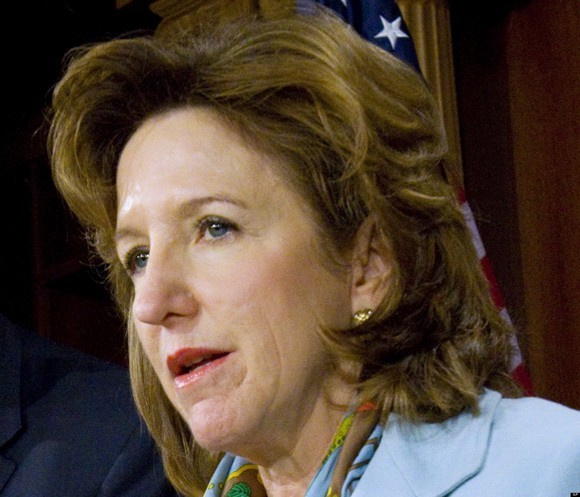Author: Josh Lederman
Publication: The Associated Press
Publication Date: March 28, 2013
Washington – For years, American opinion on gay marriage has been shifting. Now lawmakers are in a mad dash to catch up.
In less than two weeks, seven senators — all from moderate or Republican-leaning states — announced their support, dropping one by one like dominos. Taken together, their proclamations reflected a profound change in the American political calculus: For the first time, elected officials from traditionally conservative states are starting to feel it’s safer to back gay marriage than risk being the last to join the cause.
“As far as I can tell, political leaders are falling all over themselves to endorse your side of the case,” Chief Justice John Roberts told lawyers urging the Supreme Court on Wednesday to strike down a law barring legally married gay couples from receiving federal benefits or recognition.
It was the second of two landmark gay marriage cases the justices heard this week, the high court’s first major examination of gay rights in a decade. But the focus on the court cases obscured the sudden emergence of a critical mass across the street in the Capitol as one by one, senators took to Facebook or quietly issued a statement to say that they, too, now support gay marriage.
Opinion shift – For some Democrats, like Missouri Sen. Claire McCaskill and Montana Sen. Jon Tester, the reversal would have been almost unfathomable just a few months ago as they fought for re-election. The potential risks were even greater for other Democrats like North Carolina Sen. Kay Hagan and Alaska Sen. Mark Begich, already top GOP targets when they face voters next year in states that President Barack Obama lost in November. After all, it was less than a year ago that voters in Hagan’s state approved a ban on gay marriage.
Those four Democrats and two others — Mark Warner of Virginia and Jay Rockefeller of West Virginia — were swept up in a shifting tide that began to take shape last year, when Obama, in the heat of his re-election campaign, became the first sitting president to endorse gay marriage. Former Secretary of State Hillary Rodham Clinton, a potential contender in the next presidential election, followed suit in mid-March. As support among party leaders builds, rank-and-file Democrats appear wary of being perceived as hold-outs in what both parties are increasingly describing as a civil-rights issue.
Future leaders » “They’re reflecting what they’re seeing in the polls — except the most extreme of the Republican base,” former New Jersey Gov. Christine Todd Whitman, a Republican who supports gay marriage, said in an interview. “From a purely political perspective, if you want to be a leader of the future, you look at the next generation. They are overwhelmingly in favor of this.”
Among Republicans, whose party platform opposes gay marriage, the shift in position has mostly been limited to former lawmakers and prominent strategists. Still, a distinct change in tone was palpable this month when Ohio Sen. Rob Portman declared his support, citing a personal conversion stemming from his son coming out to him as gay.
Rather than blast Portman for flouting party dogma or failing an ideological litmus test, Republican leaders shrugged, indicating that even if Republicans, as a party, aren’t prepared back gay marriage, they won’t hold it against those in their ranks who do.

